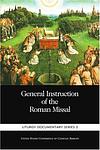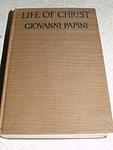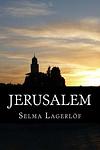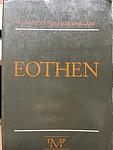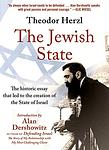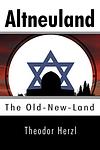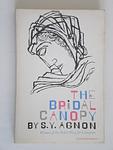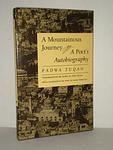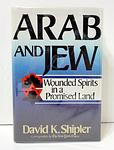The Greatest "Palestine" Books of All Time
Click to learn how this list is calculated.
This list represents a comprehensive and trusted collection of the greatest books. Developed through a specialized algorithm, it brings together 284 'best of' book lists to form a definitive guide to the world's most acclaimed books. For those interested in how these books are chosen, additional details can be found on the rankings page.
Genres
Countries
Date Range
Reading Statistics
Click the button below to see how many of these books you've read!
Download
If you're interested in downloading this list as a CSV file for use in a spreadsheet application, you can easily do so by clicking the button below. Please note that to ensure a manageable file size and faster download, the CSV will include details for only the first 500 books.
Download-
1. The Bible by Unknown
The Bible is the central religious text of Christianity, comprising the Old and New Testaments. It features a diverse collection of writings including historical narratives, poetry, prophecies, and teachings. These texts chronicle the relationship between God and humanity, detail the life, death, and resurrection of Jesus Christ, and follow the early Christian church. Considered divinely inspired by believers, it serves as a foundational guide for faith and practice, influencing countless aspects of culture and society worldwide.
-
2. Barabbas by Par Lagerkvist
This novel tells the story of Barabbas, the man who was pardoned instead of Jesus Christ, according to the New Testament. After being released, Barabbas grapples with his newfound freedom and the guilt of being spared at the expense of Jesus. As he witnesses the rise of Christianity and the profound impact Jesus' teachings have on those around him, he struggles with his own beliefs and the meaning of his existence. The narrative explores themes of faith, redemption, and the human condition.
-
3. Ben-Hur by Lew Wallace
"Ben-Hur" is a historical novel that tells the story of Judah Ben-Hur, a Jewish prince from Jerusalem who is enslaved by the Romans after being falsely accused of an attempted assassination. After years of hardship, he becomes a successful charioteer and eventually gets a chance to take revenge on the man who wronged him. Along the way, he encounters Jesus Christ and becomes a follower. The book is a tale of adventure, betrayal, revenge, and redemption set against the backdrop of the life of Christ.
-
4. Life of Christ by Giovanni Papini
"Life of Christ" is a comprehensive biography of Jesus Christ, exploring his life, teachings, and impact on humanity. The book delves into the historical, cultural, and spiritual context of his era, providing in-depth analysis of his miracles, parables, and relationships with his disciples and followers. The author also examines the significance of Christ's crucifixion and resurrection, aiming to provide a thorough understanding of his life and mission.
-
5. Dawn by Elie Wiesel
"Dawn" is a poignant novel that explores the moral complexities of the aftermath of the Holocaust through the eyes of a young Holocaust survivor turned freedom fighter. He is tasked with the execution of a British officer in retribution for the British execution of a Jewish prisoner. As he awaits the dawn, the time set for the execution, he grapples with the morality of his actions, the value of life, and the haunting memories of his past. The narrative delves deep into the psychological and emotional turmoil of its protagonist, offering a profound exploration of guilt, responsibility, and the cost of violence.
-
6. Gospels by Unknown
"Gospels" is a collection of four books from the New Testament of the Christian Bible, written by various authors. These books provide accounts of the life, teachings, death, and resurrection of Jesus Christ, each from a different perspective. They serve as the primary source of information about Jesus and form the basis of Christian theology and belief.
-
7. Jerusalem by Selma Lagerlöf
This book is a profound exploration of faith, tradition, and the quest for spiritual fulfillment, set against the backdrop of rural Sweden and the Holy Land in the late 19th century. It tells the story of a group of Swedish peasants, inspired by religious fervor, who decide to abandon their homeland and emigrate to Jerusalem to live a purer life in the city of Jesus. The narrative delves into the lives of these individuals, examining their motivations, struggles, and the impact of their decision on the loved ones they leave behind. Through its vivid portrayal of contrasting landscapes and cultures, the novel examines themes of community, belief, and the search for a spiritual homeland, making it a timeless tale of human aspiration and longing.
-
8. Nathan the Wise by Gotthold Ephraim Lessing
"Nathan the Wise" is a 18th-century play that explores religious tolerance and interfaith understanding. The story is set in Jerusalem during the Third Crusade and revolves around Nathan, a wealthy Jewish merchant, who is renowned for his wisdom and generosity. The narrative explores themes of religious tolerance as Nathan interacts with a Templar knight, a Christian patriarch, and the Muslim sultan Saladin. The story culminates with the revelation that the main characters, despite their different faiths, are all part of the same family, thus promoting a message of shared humanity and religious coexistence.
-
9. Eothen by Alexander William Kinglake
"Eothen" is a vivid travelogue that chronicles the author's journey through the Middle East in the 1830s, capturing the essence of the region with a blend of personal adventure, cultural commentary, and historical insight. The narrative takes the reader on an evocative trip across countries like Turkey, Cyprus, Lebanon, Syria, Palestine, Egypt, and Jordan, offering a glimpse into the customs, landscapes, and daily life of the time. The author's keen observations and descriptive prowess bring to life the exotic locales, the encounters with diverse peoples, and the challenges of travel in an era before modern conveniences, all while reflecting the Victorian fascination with the Orient and its perceived mysteries.
-
10. Der Judenstaat by Theodor Herzl
This book is a seminal work proposing the establishment of a Jewish state as a solution to the long-standing persecution of Jews in Europe. The author argues that the best way to avoid anti-Semitism is to create a state where Jews can govern themselves. He discusses potential locations for this state, including Palestine and Argentina, and outlines a detailed plan for its economic, political, and social structure. The book is considered a foundational text for the Zionist movement.
-
11. Altneuland by Theodor Herzl
The book is a seminal work of Zionist fiction that envisions the transformation of a future Jewish state in the land of Israel into a utopian society. It tells the story of two European Jews who, disillusioned with the anti-Semitism of the late 19th century, travel to Palestine and return 20 years later to find it has become a flourishing, modern society. The novel presents a vision of a multicultural, technologically advanced, and cooperative community where Jews live in peace, prosperity, and harmony with their neighbors. The narrative is a blend of social and political commentary, advocating for the establishment of a Jewish homeland through the power of innovative ideas and communal effort.
-
12. The Bridal Canopy by Shmuel Yosef Agnon
The novel is a rich tapestry of 19th-century Jewish life in Eastern Europe, following the picaresque journey of Reb Yudel, a poor, pious Jew, as he travels through Galician villages in search of suitable husbands for his three daughters. Along the way, he encounters a vivid cast of characters and experiences a series of adventures that reveal the customs, struggles, and faith of the Jewish communities of that era. The narrative, imbued with religious and folkloric elements, offers a blend of humor, irony, and profound insight into human nature and divine providence, painting a nostalgic picture of a bygone world.
-
13. A Mountainous Journey by Fadwa Tuqan
"A Mountainous Journey" is an evocative memoir that chronicles the life of a prominent female Arab poet, detailing her personal and intellectual evolution against the backdrop of the tumultuous political landscape of the Middle East. The narrative weaves through her experiences of growing up in a conservative society in Nablus, Palestine, her pursuit of education and literary expression, and her encounters with the significant historical events of her time. The author's journey is marked by struggles with societal expectations, the loss of loved ones, and the constant presence of conflict, yet it is also a testament to resilience, the power of words, and the quest for personal and national identity.
-
14. A History of the Crusades by Stephen Runciman
This book offers a comprehensive and detailed examination of the Crusades, a series of religious wars fought in the medieval period. The author delves deep into the political, economic, and social circumstances that led to the wars, the key figures involved, and the long-lasting effects on both the Christian and Muslim worlds. The narrative is both scholarly and engaging, providing a balanced perspective on one of history's most complex and controversial periods.
-
15. In The Heart Of The Seas by Shmuel Yosef Agnon
The book is a historical novella that follows a group of devout Jews from the Old Yishuv in Jerusalem as they embark on a perilous journey to the land of Israel in the late 19th century. Through a blend of myth, legend, and reality, the narrative explores themes of faith, longing, and the hardships of travel as the characters confront the trials of the sea and their own spiritual quests. The story delves into the lives and aspirations of these pilgrims, who are driven by a deep yearning to return to their ancestral homeland and the holy city of Jerusalem, reflecting on the enduring connection between a people and their sacred geography.
-
16. King Jesus by Robert Graves
The novel is a historical fiction that offers a unique interpretation of the life of Jesus, blending myth, history, and scholarly reconstructions. The narrative presents Jesus not merely as a spiritual leader, but as a royal figure with a legitimate claim to the throne of a significant Eastern empire. The story delves into the political and religious intricacies of the time, reimagining biblical events and characters with a focus on the complex interplay of power, prophecy, and historical destiny. The author weaves a rich tapestry of ancient cultures and traditions, challenging conventional views of biblical history and providing a thought-provoking exploration of what might have been.
-
17. Clarel by Herman Melville
This epic poem, one of the longest in American literature, explores the profound complexities of faith and doubt through the spiritual journey of its titular character, a young American student of divinity. Set against the backdrop of a pilgrimage in the Holy Land, the narrative delves into the interactions and philosophical dialogues between a diverse cast of characters, each representing different facets of religious and existential thought. The protagonist's quest for meaning is fraught with intellectual and emotional turmoil, reflecting the author's own meditations on belief, morality, and the human condition in the post-Civil War era.
-
18. The Music Of Human Flesh by Mahmud Darwish
"The Music of Human Flesh" is a poignant collection of poems that delves into the complexities of identity, exile, and the enduring human spirit. Through lyrical and evocative language, the poet navigates the landscape of memory and longing, reflecting on personal and collective histories. The verses serve as a meditation on the pain and beauty of existence, exploring themes of love, loss, and the relentless search for a sense of belonging amidst the backdrop of political turmoil and displacement. The work resonates with the universal quest for meaning and connection, even as it speaks to the specific experiences of those uprooted and marginalized by conflict.
-
19. Palestine by Joe Sacco
The book is a graphic novel that combines the artistry of comics with the in-depth reporting of investigative journalism to explore the complexities of life in the West Bank and Gaza Strip during the early 1990s. Through a series of personal interviews, the author vividly portrays the daily struggles and enduring spirit of Palestinians living under Israeli occupation. The narrative weaves together historical context, cultural insights, and the poignant stories of individuals, offering a nuanced and humanizing perspective on a conflict often reduced to political talking points. The graphic novel's stark black-and-white illustrations serve to amplify the emotional impact of the testimonies and the harsh realities of the Palestinian experience.
-
20. Arab and Jew by David K. Shipler
The book explores the cultural, political, and personal divisions between Arabs and Jews in the Middle East, specifically in Israel and Palestine. The author, through extensive interviews and personal experiences, delves into the deeply rooted prejudices, stereotypes, and mutual misunderstandings that fuel the ongoing conflict. The book sheds light on the human aspect of the struggle, highlighting the shared similarities and the tragic consequences of the divide.
Reading Statistics
Click the button below to see how many of these books you've read!
Download
If you're interested in downloading this list as a CSV file for use in a spreadsheet application, you can easily do so by clicking the button below. Please note that to ensure a manageable file size and faster download, the CSV will include details for only the first 500 books.
Download